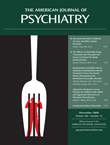Effects of Chronic Stress on Memory Decline in Cognitively Normal and Mildly Impaired Older Adults
Abstract
Objective: The literature provides evidence of a strong relationship between greater stress and memory loss, but few studies have examined this relationship with both variables measured over time. The authors sought to determine the prospective association between subjective and objective measures of chronic stress and rate of memory decline in cognitively normal and mildly impaired older adults. Method: This longitudinal study was conducted at a university research center and included 61 cognitively normal subjects and 41 subjects with mild cognitive impairment (ages 65–97). Fifty-two subjects were followed for up to 3 years (mean=2 years) and received repeated stress and cognitive assessments. Exclusion criteria were dementia, significant medical or psychiatric conditions, and medication use (e.g., corticosteroids) that might affect cortisol level or cognitive functioning. The main outcome measure was a regression-based slope reflecting performance change on tests of global cognition and episodic memory as a function of baseline diagnosis, recent life events, and salivary cortisol. Examiners were blind to stress ratings and cortisol levels at the time of cognitive testing. Results: Higher event-based stress ratings collected over the follow-up period were associated with faster cognitive decline in subjects with mild cognitive impairment but not in cognitively normal subjects. In contrast, higher cortisol levels were associated with slower cognitive decline in subjects with mild cognitive impairment but not in cognitively normal subjects. Conclusions: Chronic stress affects cognitive functioning differently in cognitively normal subjects and those with mild cognitive impairment. Cortisol, while likely to have neurotoxic effects over time, may enhance cognitive functioning in older adults compromised by existing cognitive deficits.



